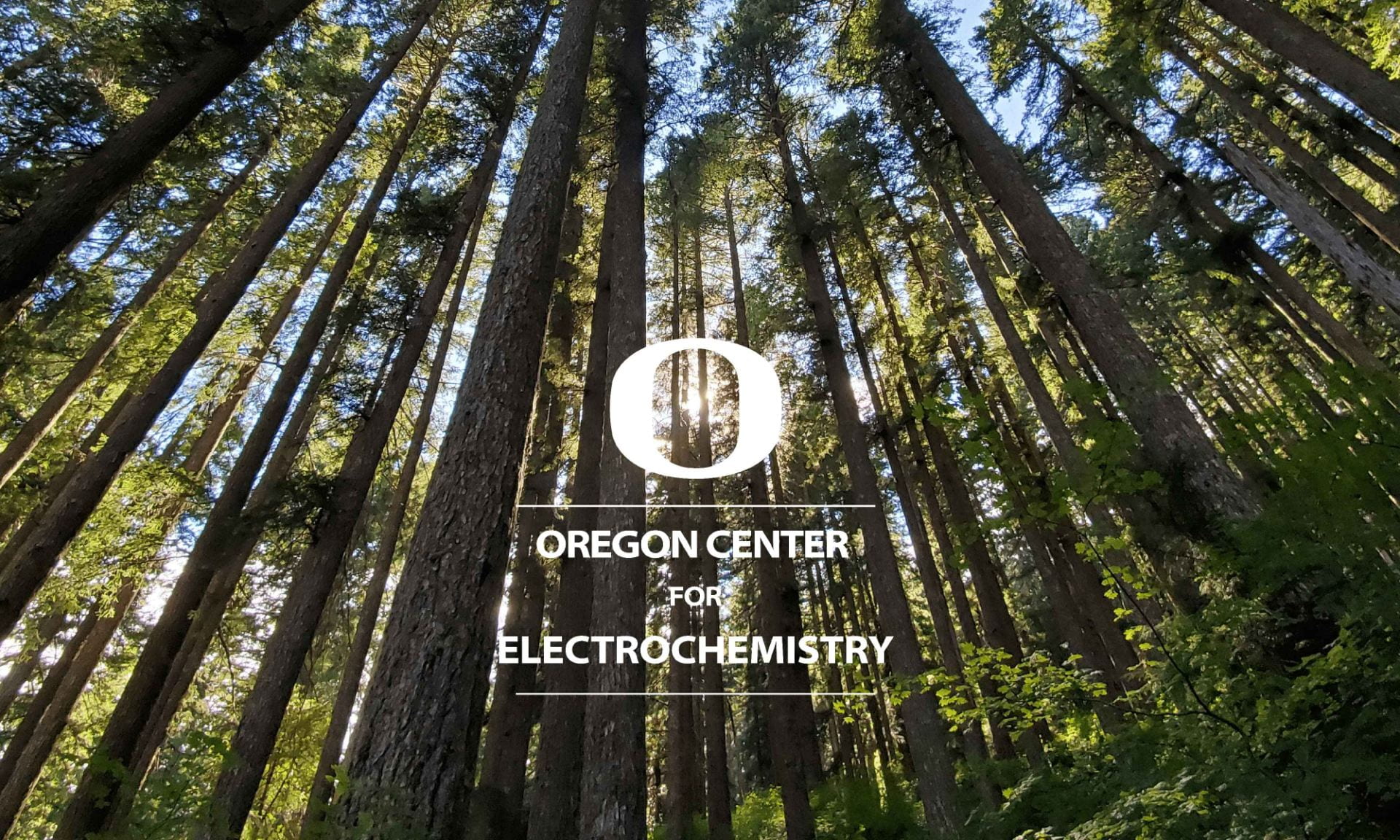The Oregon Center for Electrochemistry supports a rigorous and exciting Ph.D. research program.
There are three paths into the Ph.D. program.
Traditional Ph.D. Track: Students apply to the chemistry (or physics) PhD program. Chemistry PhD students typically do three 11-week research rotations in three different research groups during their first year while serving as graduate teaching assistants and taking coursework relevant to their research interests. PhD students joining OCE laboratories typically help teaching in the electrochemistry graduate program coursework periodically as senior students, but are primarily supported by research grants.
Industry Internship Ph.D. Track: Students apply to the M.S. internship program, completing the 6 months of immersive coursework and 9 month paid industry internship. At any point during or after the M.S. program, students discuss transferring to the Ph.D. program with OCE faculty. Students accepted to the Ph.D. program from the M.S. program do not need to take additional coursework and move directly to a faculty research group on an accelerated Ph.D. timeline. They are typically supported by grant funding, while also helping periodically in the graduate electrochemistry coursework.
External Ph.D. Track: Students apply to the M.S. internship program, completing the 6 months of immersive coursework and 9 month paid industry internship. Student then discuss with their industry or national laboratory supervisor, and OCE faculty, the possibility of earning a Ph.D. while remaining employed external to the University of Oregon. Students commit a portion of their time while employed externally and physically offsite from UO campus to publishable research. PhD thesis committees are established and the student completes all PhD requirements typically remotely, though travel stipends are provided for occasional visits to campus as needed. Students graduate with a PhD after completing a body of published research consistent with the standards in their field of study. Students on this track are supported financially by the external sponsoring company or national laboratory.
